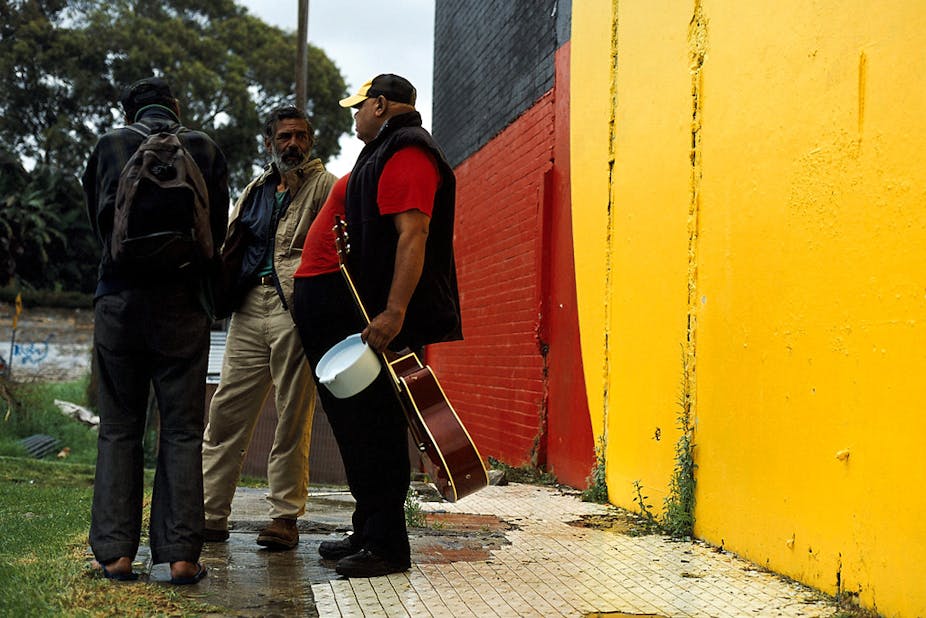AFTER THE INTERVENTION: Chris Sarra from the Queensland University of Technology says white Australia must address its relationship with Indigenous people to truly close the gap.
There has never seriously been a high expectations relationship in which the humanity of Indigenous Australians is acknowledged. From the very outset colonisers assumed we were ‘non existent’ or at the very best, savages. We were considered amongst flora and fauna and our ancestors were driven off our land and many meandered toward a pitiable existence on the fringes of provincial centres. At this time the best response offered was to assume the full bloods would die out and to round up those not of full blood, separating them from their parents, and explicitly teach them how to be less Aboriginal so they could survive in a modern society as assimilated Australians.
Even beyond this time the humanity of Aboriginal people has never seriously been acknowledged. This is why many billions of dollars have been wasted trying to make a difference with such futile efforts. Why is this so fundamentally important?
When we acknowledge the humanity of Aboriginal people we acknowledge the challenges and complexity we face together, and further, we acknowledge a sense of human capacity to rise above such challenges, as well as a sense of worthiness to be afforded an opportunity to rise. The extent to which we have been able to do this remains seriously questionable.
When policy was devised to round Aboriginal people up, place them on missions, make them work, but siphon off their wages into government coffers, this signalled a lack of belief in the capacity of Aboriginal people to spend their own hard earned money in their own interests. Despite being considered capable enough to work, we were not considered capable enough to spend the money we earned. In a sense such policy was fundamental to engineering the impoverishment of Aboriginal Australians, and today’s generations of Aboriginal people are still confronted by its legacy of dysfunction and chaos. What is unfair is that Aboriginal people are readily blamed by those who lead an ignorant existence with no true insight into the realities of Australia’s black history.
Up until the mid 1960’s in remote parts of Australia, Aboriginal stockmen were actively engaged in the economies of remote Australia. They once could be accurately described as proud men, and the backbone of the pastoral industry. This is until the equal wages decision was brought down decreeing that Aboriginal stockman should be paid the same as their white Australian colleagues. The result was many of those proud Aboriginal stockmen, were put out of work and disengaged from that economy that once enabled them to be so proud. Something about white Australia at the time considered Aboriginal people unworthy of receiving equal wages. Again this lack of belief in the worthiness of Aboriginal people played a significant part in engineering the impoverishment that still bears its legacy today.
In subsequent times there has been the rhetoric of self-determination, with Aboriginal people supposedly able to make decisions, but the reality that usually such decisions are only engaged if they are approved by the white people who sit above us. This is a reality even in the loftiest of heights for Aboriginal Australians.
More recently the NT Intervention continued the pattern of signalling a lack of belief in the sense of capacity and worth of Aboriginal Australians, thus failing to acknowledge our humanity. Aboriginal people in communities were considered so worthless that the army had to be sent in from the outside to fix them. This is doing things to people, not with them. This approach signals no belief in Aboriginal humanity.
Australia must be prepared to have a high expectations relationship with Aboriginal Australia, in which our humanity is honoured, and in so doing s our worth and capacity are fully acknowledged. Unfortunately the mainstream blogosphere signals that still too many Australians seemingly lack the capacity to embrace Aboriginal people in a more honourable way. This is the gap that truly needs closing.
I’m certain we share a desire to make a difference in Aboriginal communities. It can only be achieved in a high expectations relationship in which we support and develop each others’ capacity to lift ourselves, while at the same time have the courage to challenge and intervene as we need to.
With a high expectations relationship we truly can transcend today’s complexity.

